What has the EU learnt since Brexit?
- Published
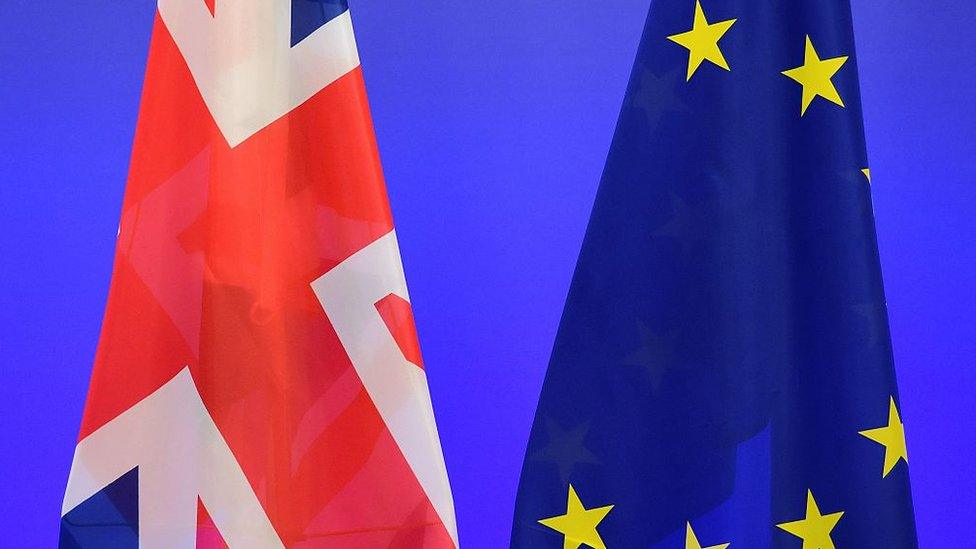
An American politician once advised "you never let a serious crisis go to waste". So has the EU learnt any lessons since the British vote to leave the union?
This is a week to reflect on the state of the union with a speech and debate in Strasbourg and then a summit in Bratislava on its future without the distracting Brits in attendance.
Before the referendum in June, Brexit was judged to be the most serious crisis facing the EU. Now no-one is so sure. It is a widely-held view that the malaise goes deeper, that there is a crisis of legitimacy. And the questions are more fundamental - can the European project rediscover its verve and confidence or is it shaken and wounded?
There is no leadership, however, and there is no appetite for grand visions.
Angela Merkel was Frau Europe but she is diminished. Probably prematurely, but the end of the Merkel era is being openly debated in Germany. Her refugee policy has split the country. For the first time since World War Two, a right-wing party managed to harvest more votes than the centre-right in a recent election.
And, in any event, the decision to offer asylum to large numbers of refugees was a German and not a European invitation.
Former French president Valery Giscard d'Estaing once said that "Europe cannot move ahead without the Franco-German engine" but there are significant differences between Berlin and Paris.
Francois Hollande's authority has been weakened by successive terrorist attacks and his failure to modernise and revive the French economy. He is deciding whether he'll even be a candidate in next year's French elections.
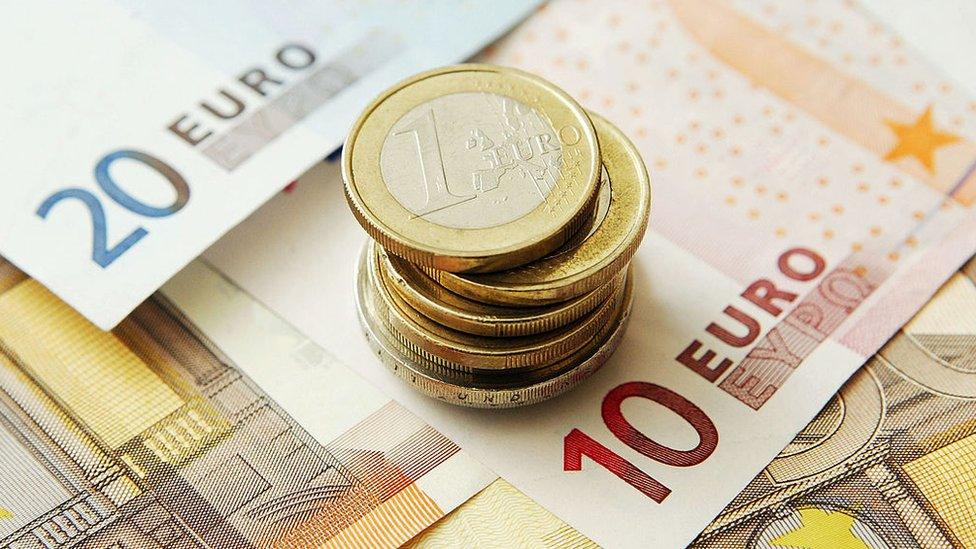
The strains from the eurozone crisis are still apparent
The far-right party, the National Front, is buoyant in the polls and promises a French referendum on membership of the EU. Marine Le Pen is unlikely to reach the Elysee Palace but French voters do not seem in the mood for European dreams.
In recent years the EU has struggled to escape its tangled problems. The strains from the eurozone crisis are still sowing divisions. The economy is recovering and unemployment is falling but the fear of economic stagnation has not lifted.
Italy is struggling with non-performing loans and a banking crisis - potentially now the most serious crisis facing the EU - Portugal could need a second bailout and Greek debt is still equivalent to more than 170% of economic output, a problem parked but not resolved.
These challenges are likely to be massaged and, with an election year approaching in Germany, there is little appetite to offer more financial assistance or for further eurozone integration.
What the economic problems testify to are the new fault lines dividing the continent.
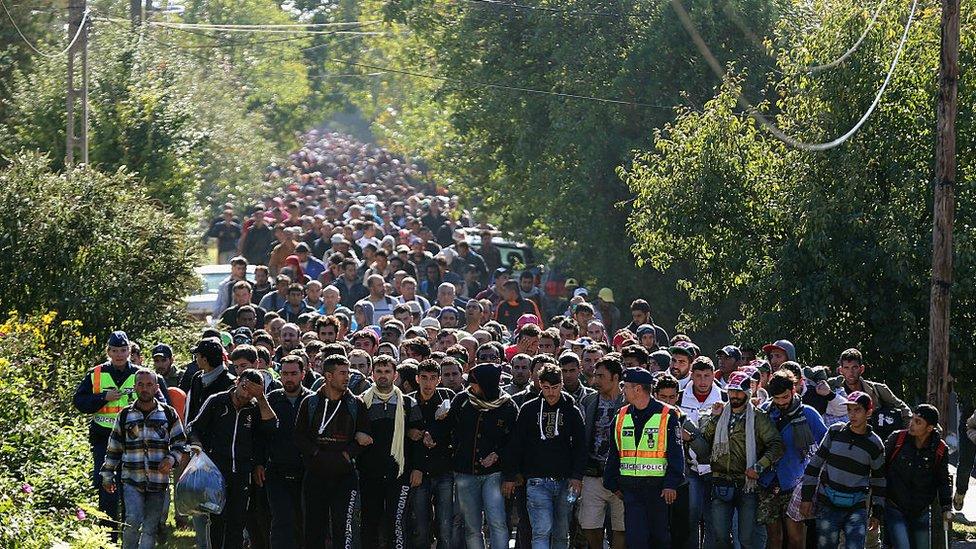
There have been calls for some eastern EU states to do more for refugees
The so-called Club Med countries are weary from years of low growth and high unemployment. They want an end to austerity and to bend the rules intended to return discipline to the eurozone. The stability pact is fraying and that troubles countries to the north like Germany, the Netherlands and Finland.
And then there is an East-West divide. To the East lie the so-called Visegrad countries - Hungary, the Czech Republic, Poland and Slovakia. Over the refugee crisis they have defied Brussels and calls to share the burden. But the divide runs deeper. They are increasingly resistant to embracing the multicultural society that defines much of Western Europe.
The refugee crisis is unresolved. The migrants are still coming but far fewer are making the journey across the Aegean from Turkey. Thousands, however, are making the perilous journey from Libya. Europe is still without a convincing policy and the arguments over refugee quotas continue.
So what is to be done? Some are inclined to relaunch the project, while others believe they must demonstrate their ambition to the world - that despite the departure of Britain, the project is expanding.
So this week in Bratislava there will be a discussion about defence and security. There are plans to build a new Brussels headquarters for European battle groups, although officials insist this is not a step towards a European army.
The sceptics will say that it smacks of the old EU way; build the institutions first and the funding and policies will follow.
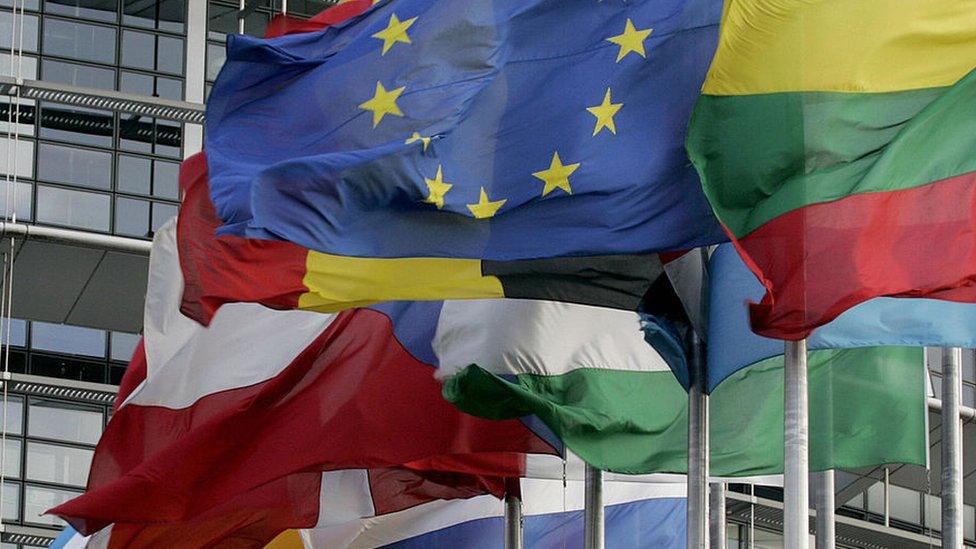
The EU is debating its future scale and ambitions
The big divide, the major fault line, is over destination. It is in the DNA of Brussels and many foreign ministries that destiny lies in ever-closer union. There are, however, voices arguing that deeper is not always better, that less can mean more, that flexibility is a virtue and not a weakness, that the light touch can be more effective than micro-management, that the answer to every problem cannot necessarily be "more Europe".
These pragmatists argue that the EU has huge reservoirs of goodwill.
Even in a country like Greece that has seen its economy shrink by 26% there has always been a majority for staying in the both the EU and the eurozone. Hungary has repeatedly argued with Brussels but there are no moves to leave the EU. The attachment to belonging to the European family should not be underestimated.
Although 48% of Europeans are worried about migration, the principle of freedom of movement of people remains popular. The pragmatists say you can keep the principle while building in flexibility.
There is an understanding that the EU needs some popular initiatives. It has to become a "champion of the people" as one Brussels official put it and needs less ideology and more delivery. Why not "listen to the people on migration" the official asks.
So this week some European leaders will be arguing for smaller projects that deliver value for the European voter.
The test of the EU is whether it can deliver prosperity and security. Can the union control migration? Can it restrict the movement of terrorists? Can it protect its external borders?
This week we'll get a glimpse of what the EU has learnt from the shock of losing one of its members.
- Published9 September 2016
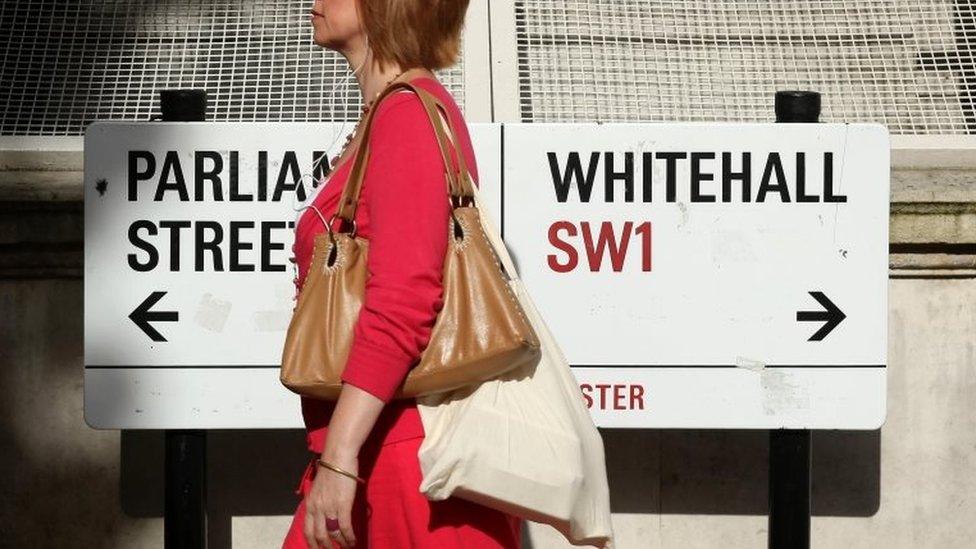
- Published8 September 2016
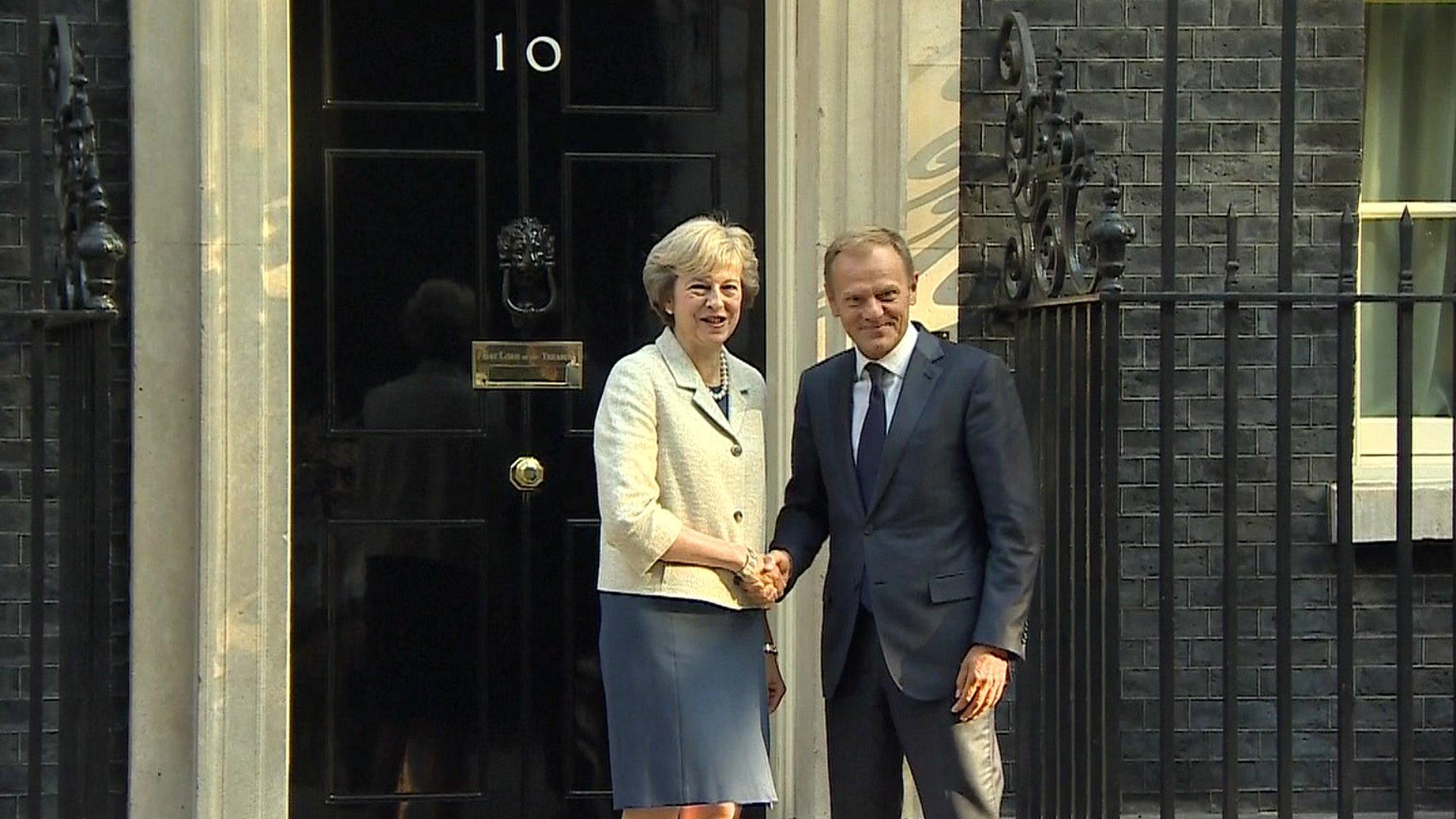
- Published8 September 2016
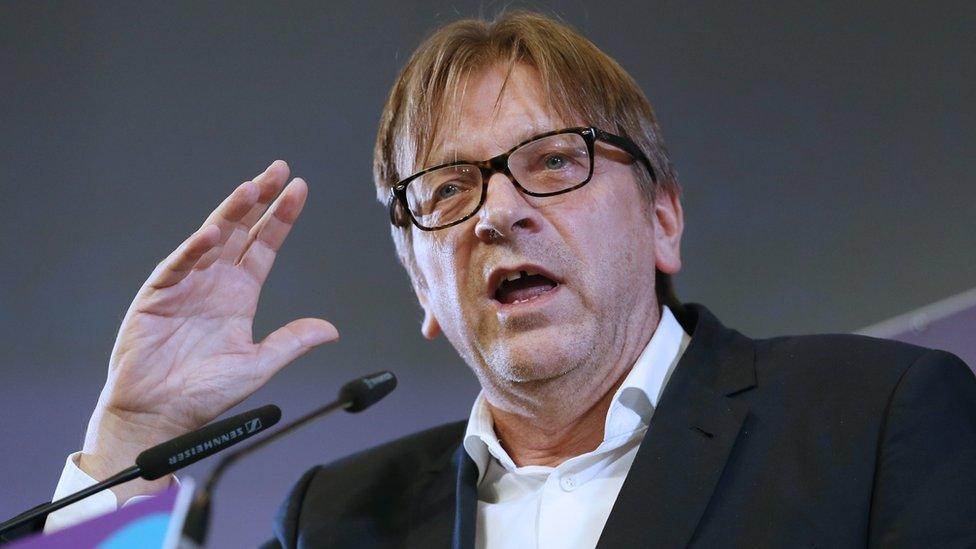
- Published7 September 2016
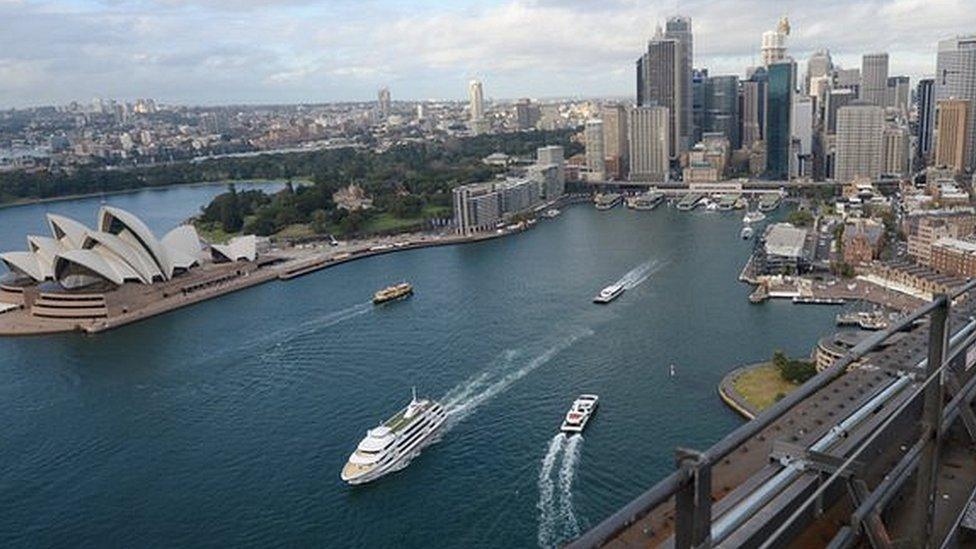
- Published28 March 2017
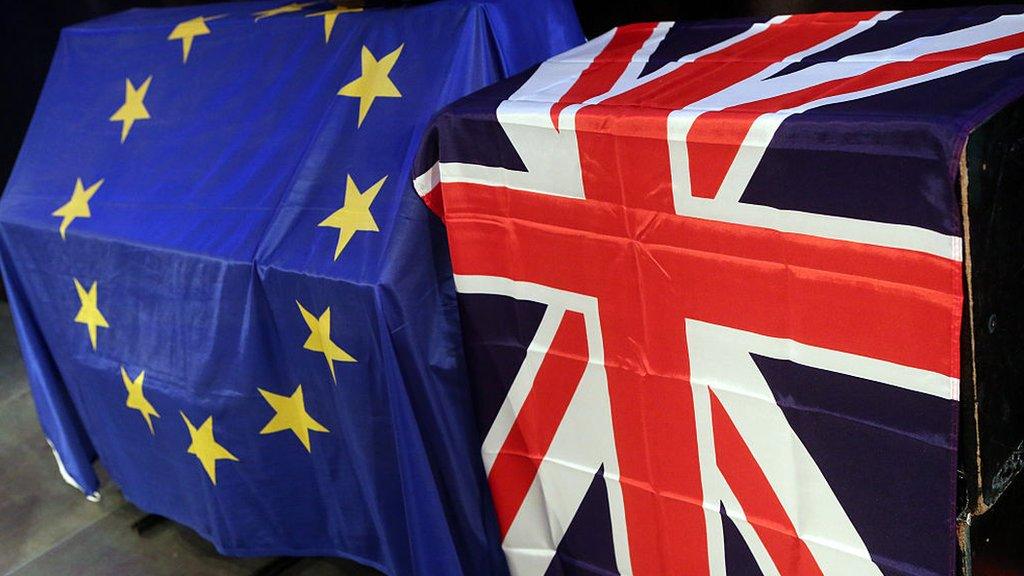
- Published30 December 2020

